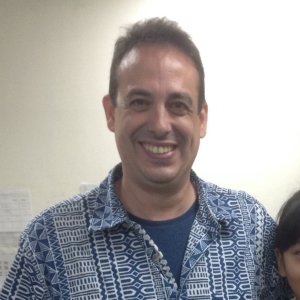This review may contain spoilers
Who Will Save The Children?
There is a universal disease that runs rampant throughout the world. It really doesn’t matter the country or culture. It’s there. And it’s something that has become indelibly worse over the years. The disease is indifference. And we see first-hand in this series how much indifference has seeped into the children of society. Children are no better than adults when it comes to preying upon those they deem weak and worthless. Physical and cyberbullying are only the symptoms of a much bigger problem. They are symptoms of indifference.
The series could almost be called, “The Tragedy of Judge Shim.” She is a cold but effective judge who confesses that she despises young offenders. The reason for this hatred stems from a past experience that we don’t learn about until the series' last two episodes. It is not accurate to state that she doesn’t care. She does. And she is just as eager to investigate a case and uncover the truth as she pronounces sentences that she feels are the most effective and the most just when dealing with juvenile offenders. Unfortunately, Judge Shim lives in a prison of her own making. She lives in a barren apartment that has no warmth or meaning to it. Her sole purpose is to preside over juvenile offenders. In many ways, she’s allowed those who killed her son to kill her as well. For what kind of a life is that? In the end, the perpetrators may have finally been brought to justice, but she’s allowed them to destroy her too.
Judge Shim is an effective judge even though she can be quite foolish. Chasing a young offender through the streets to try and apprehend her alone wasn’t a smart thing to do. Also, breaking into the hideout of a known, violent offender was beyond foolish. It nearly got her killed in the process. But I suppose that someone who’s essentially already dead inside, probably doesn’t care too much about what happens to them. Indifference isn’t only about how we treat others. It's also about how we treat ourselves.
If the numbers that are put on display at the very beginning of the series are accurate—3,300 judges in Korea with only 20 juvenile judges—we can see why the youth of Korea are in such dire straits and why the juvenile courts certainly need more help and resources.
Each case spans about two episodes, and neither the writer nor the director holds back when it comes to depicting youth crimes. They are raw, violent, and meant to demonstrate the sheer cruelty that is perpetrated upon those who are preyed upon. It shouldn’t matter that these are children and not adults. We quickly find that it doesn’t matter the age or the circumstances. Children are just as capable of any type of violent crime as their adult counterparts.
One of the reasons I love K-dramas so much is that most of them carry a much-needed message. A show like this isn’t just for entertainment purposes but is trying to shed some light on a much-needed issue that must be addressed. Many victims and victims’ parents ask the same question: “How can someone so young do something like this?” We live in a world we think is safe. We live in a world that should be safe, especially for the children. But, sadly, it is not so.
If you don’t address the core problem, then nothing will change. Things will not only stay the same, but they are likely to get even worse. There is a common denominator among many young perpetrators. They come from broken homes. They tend to come from poor families. They tend to be bullied children and outcasts themselves. Some have mental disorders. And ironically, these are also the commonalities found among adult criminals as well.
Punishment is pointless without rehabilitation. Judge Kang is correct in his assessment that harsher punishments don’t work. Rehabilitation is required. And as Judge Shim points out to Judge Cha, it does, indeed, take a village to raise a child. People are like points on a spider web. Remove one point, and the entire web begins to come apart. And it takes teachers, friends, family, shopkeepers…everyone! Raising a child is NOT about telling them what to do and what not to do. It’s about empowering and educating them so that they can make wise decisions. But none of that matters unless indifference is removed from the equation. Compassion is a key component, for if people truly care for each other, they will always look out for one another.
One of the saddest things I saw in this series is the ostracizing of the victims. My God! This is proof of the indifference that I’ve talked about. How can you simply cut off a person for something that happened to them? And blame them? That is truly sickening, and those who do these things are no better than the criminals themselves. Indeed, they are the same.
Performances across the board were astounding and powerful. Kim Hye Soo gives us Judge Shim who is strong on the outside but broken on the inside. I saw Lee Sung Min in Misaeng—a series in which he was nothing short of brilliant—and I was thrilled to see him in this series as a judge who’s lost his way.
This isn’t necessarily an easy series to watch, but it’s a necessary one. If people don’t start to wake up and realize that changes are needed in how we deal with each other, let alone our children, then it really will be impossible to save the children, let alone anyone else.
The series could almost be called, “The Tragedy of Judge Shim.” She is a cold but effective judge who confesses that she despises young offenders. The reason for this hatred stems from a past experience that we don’t learn about until the series' last two episodes. It is not accurate to state that she doesn’t care. She does. And she is just as eager to investigate a case and uncover the truth as she pronounces sentences that she feels are the most effective and the most just when dealing with juvenile offenders. Unfortunately, Judge Shim lives in a prison of her own making. She lives in a barren apartment that has no warmth or meaning to it. Her sole purpose is to preside over juvenile offenders. In many ways, she’s allowed those who killed her son to kill her as well. For what kind of a life is that? In the end, the perpetrators may have finally been brought to justice, but she’s allowed them to destroy her too.
Judge Shim is an effective judge even though she can be quite foolish. Chasing a young offender through the streets to try and apprehend her alone wasn’t a smart thing to do. Also, breaking into the hideout of a known, violent offender was beyond foolish. It nearly got her killed in the process. But I suppose that someone who’s essentially already dead inside, probably doesn’t care too much about what happens to them. Indifference isn’t only about how we treat others. It's also about how we treat ourselves.
If the numbers that are put on display at the very beginning of the series are accurate—3,300 judges in Korea with only 20 juvenile judges—we can see why the youth of Korea are in such dire straits and why the juvenile courts certainly need more help and resources.
Each case spans about two episodes, and neither the writer nor the director holds back when it comes to depicting youth crimes. They are raw, violent, and meant to demonstrate the sheer cruelty that is perpetrated upon those who are preyed upon. It shouldn’t matter that these are children and not adults. We quickly find that it doesn’t matter the age or the circumstances. Children are just as capable of any type of violent crime as their adult counterparts.
One of the reasons I love K-dramas so much is that most of them carry a much-needed message. A show like this isn’t just for entertainment purposes but is trying to shed some light on a much-needed issue that must be addressed. Many victims and victims’ parents ask the same question: “How can someone so young do something like this?” We live in a world we think is safe. We live in a world that should be safe, especially for the children. But, sadly, it is not so.
If you don’t address the core problem, then nothing will change. Things will not only stay the same, but they are likely to get even worse. There is a common denominator among many young perpetrators. They come from broken homes. They tend to come from poor families. They tend to be bullied children and outcasts themselves. Some have mental disorders. And ironically, these are also the commonalities found among adult criminals as well.
Punishment is pointless without rehabilitation. Judge Kang is correct in his assessment that harsher punishments don’t work. Rehabilitation is required. And as Judge Shim points out to Judge Cha, it does, indeed, take a village to raise a child. People are like points on a spider web. Remove one point, and the entire web begins to come apart. And it takes teachers, friends, family, shopkeepers…everyone! Raising a child is NOT about telling them what to do and what not to do. It’s about empowering and educating them so that they can make wise decisions. But none of that matters unless indifference is removed from the equation. Compassion is a key component, for if people truly care for each other, they will always look out for one another.
One of the saddest things I saw in this series is the ostracizing of the victims. My God! This is proof of the indifference that I’ve talked about. How can you simply cut off a person for something that happened to them? And blame them? That is truly sickening, and those who do these things are no better than the criminals themselves. Indeed, they are the same.
Performances across the board were astounding and powerful. Kim Hye Soo gives us Judge Shim who is strong on the outside but broken on the inside. I saw Lee Sung Min in Misaeng—a series in which he was nothing short of brilliant—and I was thrilled to see him in this series as a judge who’s lost his way.
This isn’t necessarily an easy series to watch, but it’s a necessary one. If people don’t start to wake up and realize that changes are needed in how we deal with each other, let alone our children, then it really will be impossible to save the children, let alone anyone else.
Was this review helpful to you?


 1
1












